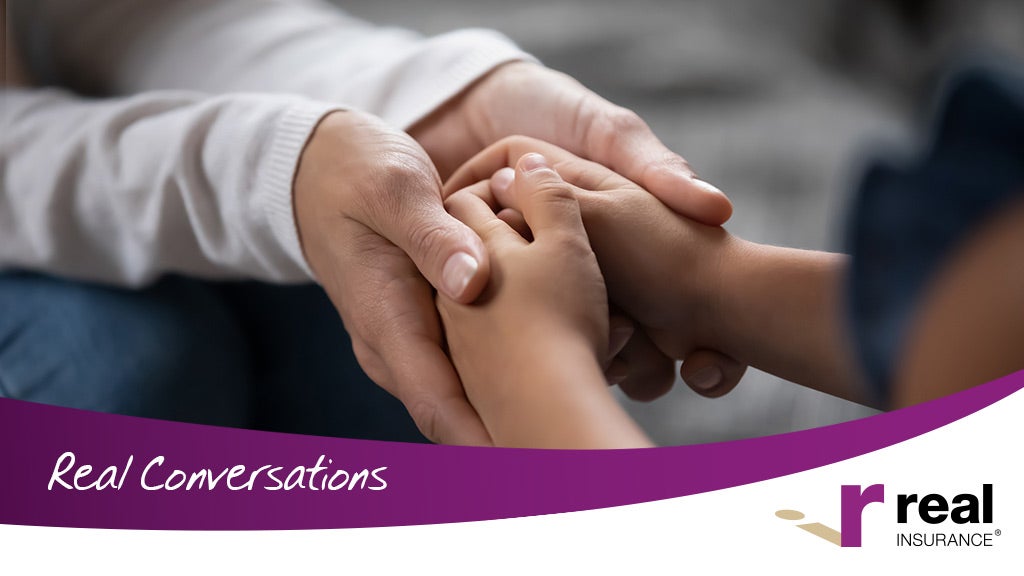Real Conversations: Is my child the bully?

Dealing with bullying is an unfortunate fact of life for many children, and it can be equally distressing for parents. As the latest instalment in our Real Conversations series, we will tackle how to identify the signs of bullying and how to start the conversation. Emily Hanlon, a clinical psychologist at The Playful Psychologist, offers tips for parents currently dealing with this challenging issue.
Emily is a registered psychologist with the Australian Health Practitioner Regulation Agency. She has a Bachelor of Arts (Psychology), Post Graduate Diploma of Psychology and a Masters of Clinical Psychology. Emily has a specific interest in Autism Spectrum Disorder (ASD), developmental delay anxiety in children and building self-esteem.

What is bullying?
Whether it’s through physical actions or words alone – and increasingly online – bullying is the intentional act of causing distress and psychological harm to another individual. Bullying is present across all age groups and you may see it in various walks of life – from the workplace to the supermarket – but bullying manifests very noticeably in children. Whether it’s due to the pressures of school, issues at home or simply the challenges of emotional development in childhood, statistics show that the majority of kids in Australia will experience bullying at some stage.
How does bullying affect a child – and what can you do as a parent?
Bullying can result in a variety of issues for the recipient – from becoming more emotionally withdrawn to lashing out at others, even their parents. It is important for parents to take an active role in addressing bullying, and Emily Hanlon has some keen advice for families dealing with this trauma.
“I genuinely think the best thing you can do [as a parent] is listen,” she says. “I bought the most beautiful book the other day called The Rabbit Listened. It’s about a little boy who is upset and all the animals try to help him in different ways, but the only thing that truly helps is the rabbit, who does nothing but listen.”
Don’t underestimate the power of listening, but also follow through by taking action and offering advice to your child.
“It’s important for your child to know that you understand, that you are in their corner, and that you will investigate. They need to know that they are not alone in this.”
Emily also suggests helping them make a safety plan. This can be done even before raising the issue with the school or the bully’s parents. It should include important steps to take, such as what to do when they are being bullied, where to go, and who to tell if they feel unsafe.
Is my child being bullied?
Sometimes the signs of a physically bullied child are glaringly apparent: a black eye or split lip as a result of a fight at school. At other times, the damage is invisible but no less malignant. Verbal abuse and online bullying can cause your child to retract into their own minds and refuse to speak about the problem. Emily outlines a few warning signs that your child may be experiencing bullying:
- An unexpected change in grades, or sudden disinterest in academic tasks.
- School avoidance or reluctance and attempts to fake an illness.
- Complaints of headaches and stomach aches.
- Changes in eating habits (either binge eating or a significant reduction in intake).
- Signs of depression, including low self-esteem, negative self-talk, irritability, aggression towards siblings, disinterest in hobbies.
- Sleep disturbances or nightmares.
- Loss of belongings.
- Unexplained injuries or bruises.
- Avoidance of social situations (e.g. birthday parties) or loss of friendships.
- Self-destructive behaviours or damaging of property.
- Withdrawn behaviour, especially after using technology or immediately after school.
Is my child the bully?
Facing the prospect that your child may actually be the bully can be devastating for parents. But it’s important to acknowledge the reality and take positive steps to rectifying your child’s behaviour.
“Children don’t go out of their way to be mean for no reason,” Emily says. “There is often a big emotional need there if children are bullying others, so it’s important to get down to that underlying behaviour.”
As hard as it will be during those initial conversations, approach your child with emotional control, making sure to broach the topic in a calm, neutral way. When emotions drive the conversation, your child may refuse to talk or even lash out.
“Also try to avoid ‘why’ questions,” Emily adds. “This insinuates that you have already made up your mind and you’re looking for an explanation. Instead, ask ‘what’ questions. So instead of ‘Why did you say such horrible things?’ you could try ‘Your teacher called me today to let me know there was a situation between you and Billy. Can you tell me what happened? What words were said? What made you want to use those words?’ and so on.”
Here are some of the signs your child may be a bully:
- They always need to be in control.
- Outward displays of overt pride and/or arrogance.
- They have previously been a victim of bullying.
- They refuse to take responsibility for their actions.
Managing a child who has bullied others
The reality is that many bullies don’t understand the scope of their actions. Maybe they believe it’s just a bit of lighthearted fun, but the child who is being bullied certainly doesn’t feel that way. How you approach those initial conversations and then deal with the issue of bullying will ultimately dictate whether they change their ways or become even more entrenched in their bad behaviour.
“Because most bullies don’t understand how wrong their behaviour is and how it makes the person being bullied feel, it’s important to focus on perspective over the long term. Talk with your child regularly and help them develop their theory of mind so that they can understand that their actions have consequences.”
Address the bullying issue
Whether your child is being bullied or doing the bullying, it’s an issue that needs to be addressed with a calm and empathetic mindset. Hopefully this advice from a clinical psychologist helps your child move past this difficult stage and become a more emotionally resilient, well-rounded young person.
Even the smallest life event can alter your cover needs, so it’s important to regularly review your life insurance policy. Request a quote with Real Insurance today or call us on 1300 377 325.
28 Apr 2022